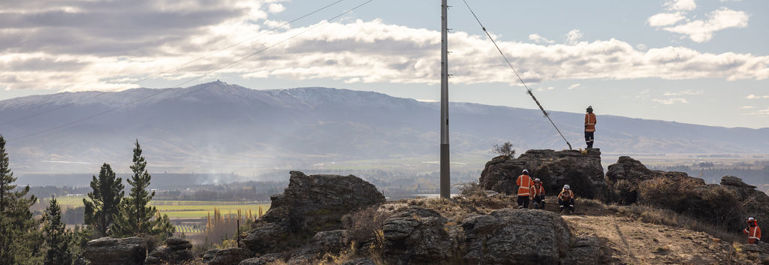Common electricity terms
- Cables - Insulated underground conductor used to transport electricity. Generally consists of an aluminium or copper core with multiple layers of protective insulated covers.
- Certificate of Compliance - A certificate issued in accordance with Regulation 39 of the Electricity Regulations 1997, certifying the compliance of an installation, with those regulations.
- Consumer - A person or group of people who use electricity.
- Energy Retailer - A company set up to sell electricity or gas to consumers connected to line company networks.
- ICP - Installation Control Point. The point where the supply of electricity to a consumer's property can be isolated from the network, usually by removing a fuselink at a pillar or pole. Every ICP is identified by a unique number, which will appear on electricity bills from the energy retailer.
- Lines - Overhead power lines, generally made of aluminium or copper, which transport electricity. They are sometimes also referred to as conductors.
- Network - Means the assets, lines, and cables that are owned by Aurora Energy and that form part of the electricity system required to convey electricity to the point of supply for consumers.
- Network Company (Distribution Company, Lines Company) - A company that owns the network of lines, cables and transformers that transport electricity from Transpower's national grid and distribute it to consumers.
- Pillars (points of supply, plinths, supply boxes and gyros) - Boxes are normally green or black plastic. Pillars are usually located on the property boundary or on the roadside. They form a connection point joining the consumer's private underground service cable to the Aurora Energy underground network.
